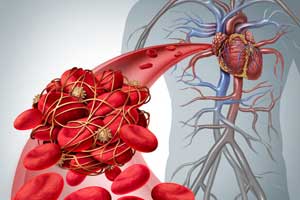- Home
- Editorial
- News
- Practice Guidelines
- Anesthesiology Guidelines
- Cancer Guidelines
- Cardiac Sciences Guidelines
- Critical Care Guidelines
- Dentistry Guidelines
- Dermatology Guidelines
- Diabetes and Endo Guidelines
- Diagnostics Guidelines
- ENT Guidelines
- Featured Practice Guidelines
- Gastroenterology Guidelines
- Geriatrics Guidelines
- Medicine Guidelines
- Nephrology Guidelines
- Neurosciences Guidelines
- Obs and Gynae Guidelines
- Ophthalmology Guidelines
- Orthopaedics Guidelines
- Paediatrics Guidelines
- Psychiatry Guidelines
- Pulmonology Guidelines
- Radiology Guidelines
- Surgery Guidelines
- Urology Guidelines
Dabigatran, Rivaroxaban, and Apixaban similarly effective in nonvalvular AF

The risk for stroke or systemic embolism in patients with nonvalvular atrial fibrillation (AF) is not significantly different between 3 non-vitamin K antagonist oral anticoagulants (NOACs), dabigatran, rivaroxaban, and apixaban.
The study, published in the European Journal of Epidemiology found apixaban to have the most favorable safety profile among the three NOACs. Apixaban was associated with lower risk for major bleeding vs rivaroxaban or dabigatran. Rivaroxaban showed a higher risk for major bleeding vs dabigatran.
Guowei Li, Guangdong Second Provincial General Hospital, Guangzhou, China, and colleagues conducted the systematic review and meta-analysis to summarize the evidence of observational studies for direct comparative effectiveness and safety amongst NOACs in patients with AF.
Read Also: Use of non-vitamin K blood-thinners with certain medications associated with increased risk of major bleeding
The NOACs have been increasingly prescribed in clinical practice for the prevention of stroke in patients with nonvalvular atrial fibrillation (AF). Direct comparisons between NOACs in trials are lacking, leaving an important clinical decision-making gap.
For the study, the researchers systematically searched Conference proceedings and electronic databases including MEDLINE, CINAHL, EMBASE, and PUBMED. The observational studies directly comparing individual NOACs in patients with nonvalvular AF who were aged ≥ 18 years for stroke prevention, were included.
Primary outcome included effectiveness outcome (stroke or systemic embolism) and safety outcome (major bleeding).
The Grading of Recommendations Assessment, Development and Evaluation (GRADE) was used to rate the overall quality of evidence for each outcome. Fifteen studies were included for qualitative synthesis, twelve studies for meta-analyses.
Key Findings:
- No significant difference in risk for stroke or systemic embolism between:
- rivaroxaban and dabigatran (HR, 1.00; P=.97),
- apixaban and rivaroxaban (HR, 1.09; P=.19) and
- dabigatran and apixaban (HR, 0.94; P=.32).
- Rivaroxaban was associated with higher risk for major bleeding vs dabigatran (HR, 1.39; P<.001).
- Risk for major bleeding was significantly higher with rivaroxaban vs apixaban (HR, 1.71; P<.001).
- Apixaban was associated with significantly lower risk for major bleeding vs dabigatran (HR, 0.80; P=.01).
"No significant difference was observed in the risk of stroke or systemic embolism between the NOACs. Such findings may provide some decision-making support for physicians regarding their choices amongst NOACs in patients with AF," concluded the authors.
For further reference log on to https://doi.org/10.1007/s10654-018-0415-7

Disclaimer: This site is primarily intended for healthcare professionals. Any content/information on this website does not replace the advice of medical and/or health professionals and should not be construed as medical/diagnostic advice/endorsement or prescription. Use of this site is subject to our terms of use, privacy policy, advertisement policy. © 2020 Minerva Medical Treatment Pvt Ltd